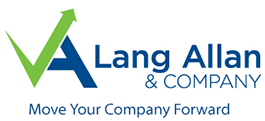With cash-basis accounting, you record all transactions when cash changes hands, which means when a cash payment is received from customers or is paid out by your company for purchases or other services. Cash receipts can be actual cash or check, credit card, or electronic transfer. It’s a pretty simple process.
You cannot, however, use cash-basis accounting if you sell products on store credit, billing the customer later. Cash-basis accounting does not include a provision to record and track money due from customers at some time in the future.
The same is true for purchases. You record only the purchase of supplies or goods that will be later sold when you pay cash. If you buy goods on credit to be paid later, you won’t record the transaction until cash is paid out.
Make the Switch to Accrual Accounting
Many small businesses run by sole proprietors, or a small group of partners use cash-basis accounting because it’s easy. But as the business grows, the owners find it necessary to switch to accrual accounting to more accurately track revenues and expenses.
Business owners switch to accrual accounting because cash-basis accounting does a good job of tracking cash flow, but a poor job of matching revenues earned with money laid out for expenses. This becomes a problem when a company buys products in one month but sells them the next month.
With accrual accounting, you record all transactions when they occur, even if no cash changes hands. If you sell on store credit, you record the transaction immediately and enter it into an accounts receivable account until you receive payment. If you buy goods on credit, you immediately enter the transaction into an accounts payable account until you pay out cash.
Consider the Disadvantages
Accrual accounting does a good job of matching revenues and expenses but a poor job of tracking cash. Because you record revenue when the transaction occurs and not when you collect cash, your income statement can look great even if you don’t have cash in the bank.
More companies use accrual accounting to monitor cash flow on a weekly basis to ensure that they have enough cash on hand to operate the business. If you run a seasonal business, you can establish short-term lines of credit through your bank to maintain cash flow in lean times.
If you are wondering what is right for your business, call us today. We’ll help you set up a system that’s appropriate for your situation so you can take control of your finances.
